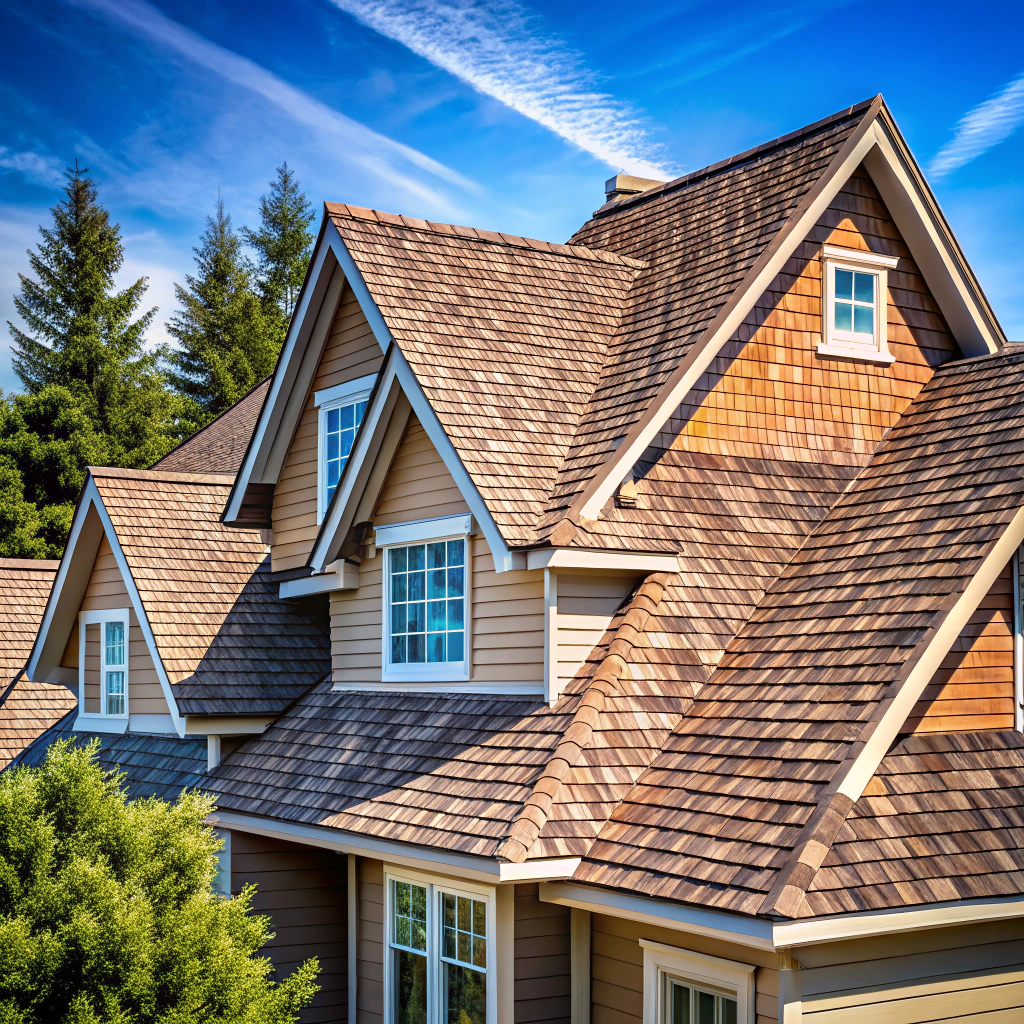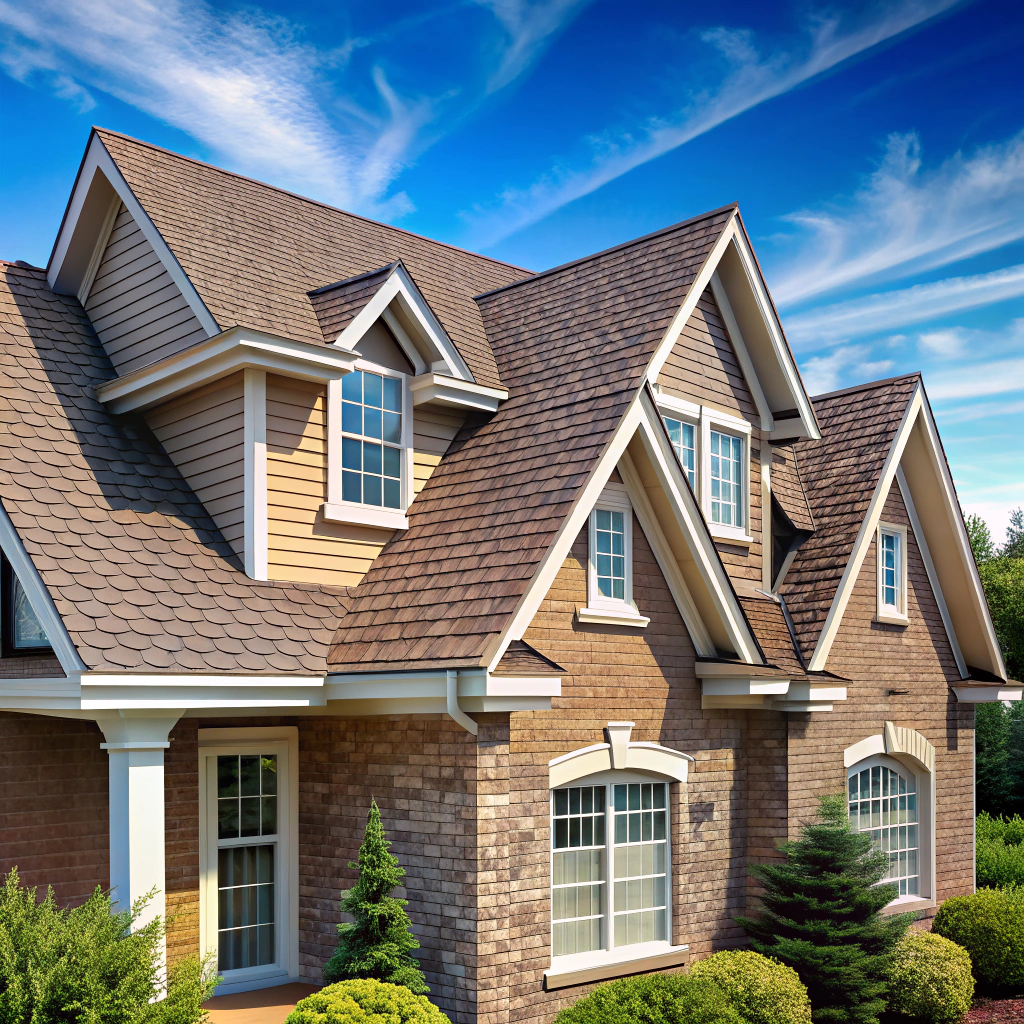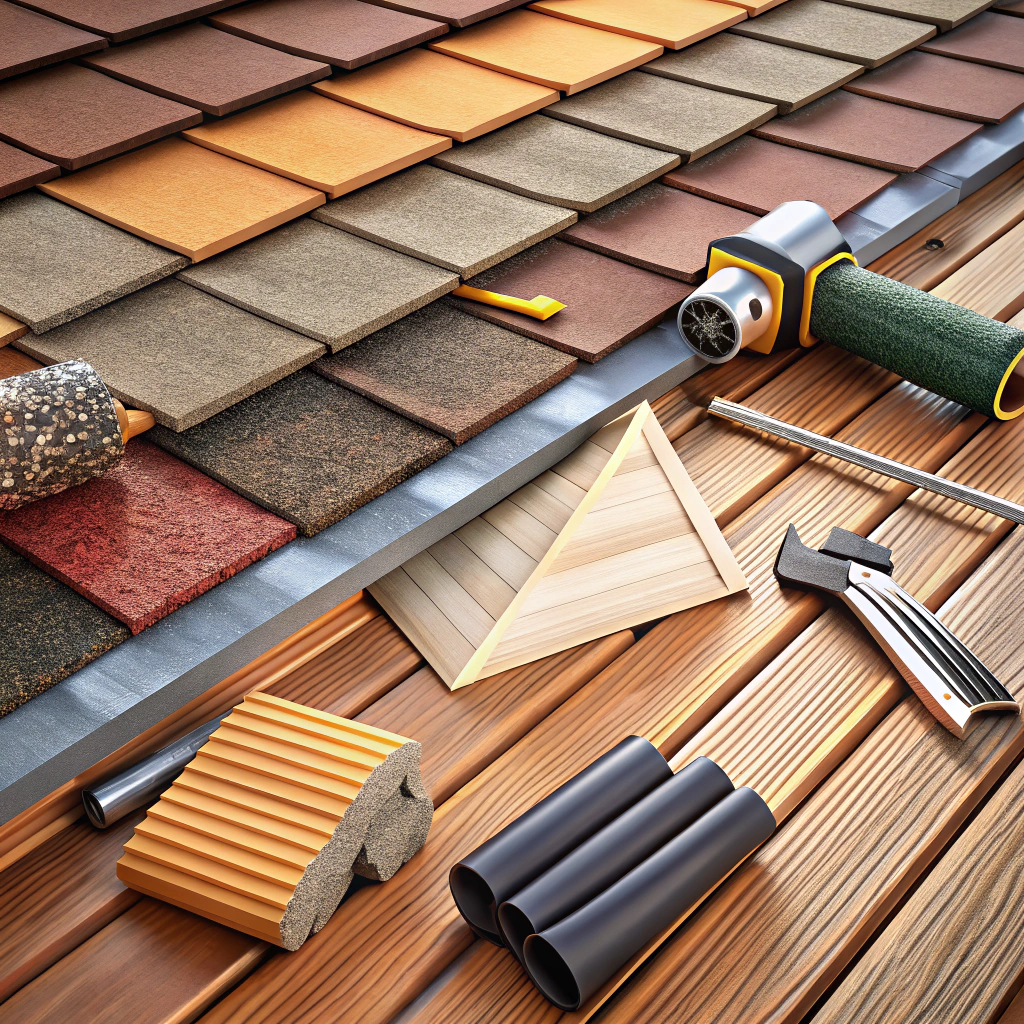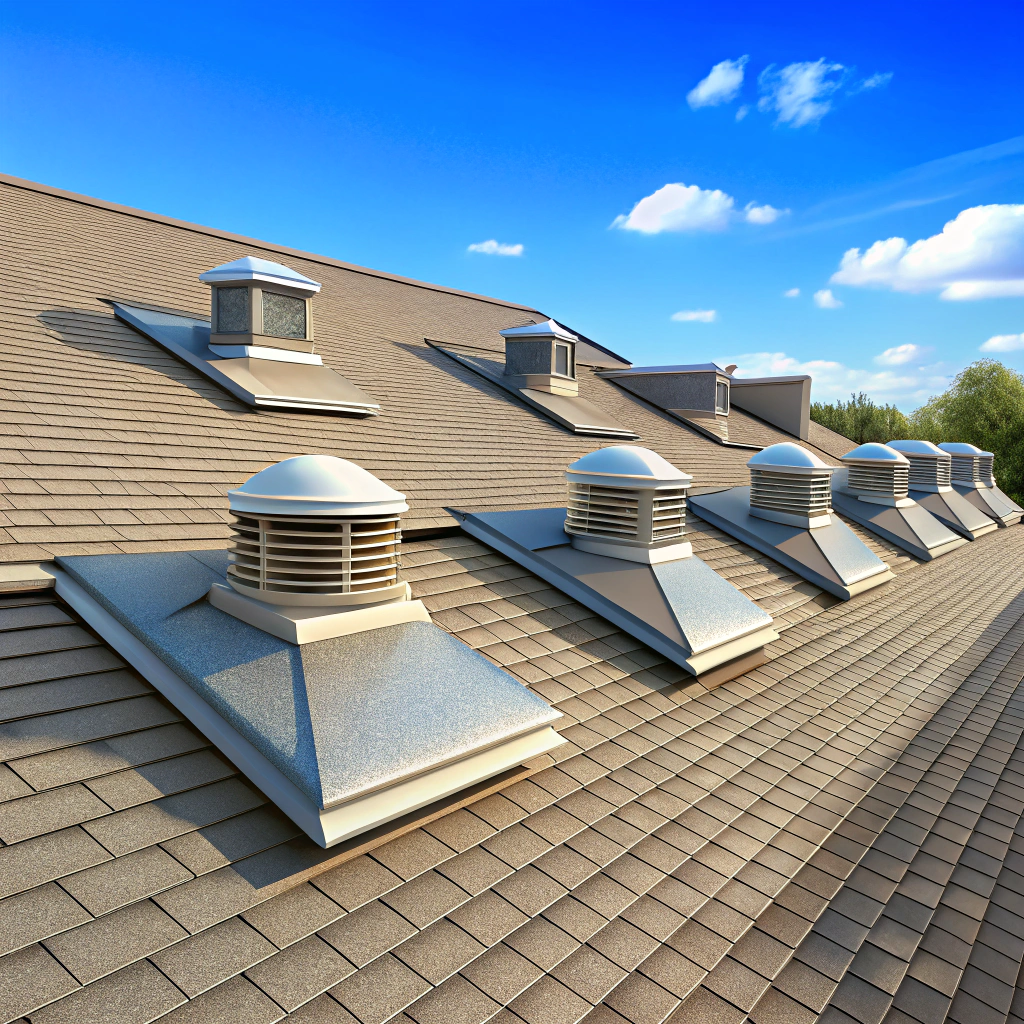Last updated on
Discover the cost of installing a metal roof in Florida and learn how it can be a valuable investment for your home.
If you’re looking to replace your roof in Florida, you may be wondering about the cost of a metal roof. Metal roofing has become increasingly popular due to its durability, energy efficiency, and long lifespan.
However, with so many factors affecting the price of a metal roof, it can be challenging to estimate the cost accurately. In this article, we’ll dive into what affects the cost of a metal roof in Florida and provide you with an idea of what to expect when budgeting for your new roofing project.
So let’s get started!
Types of Metal Roofs
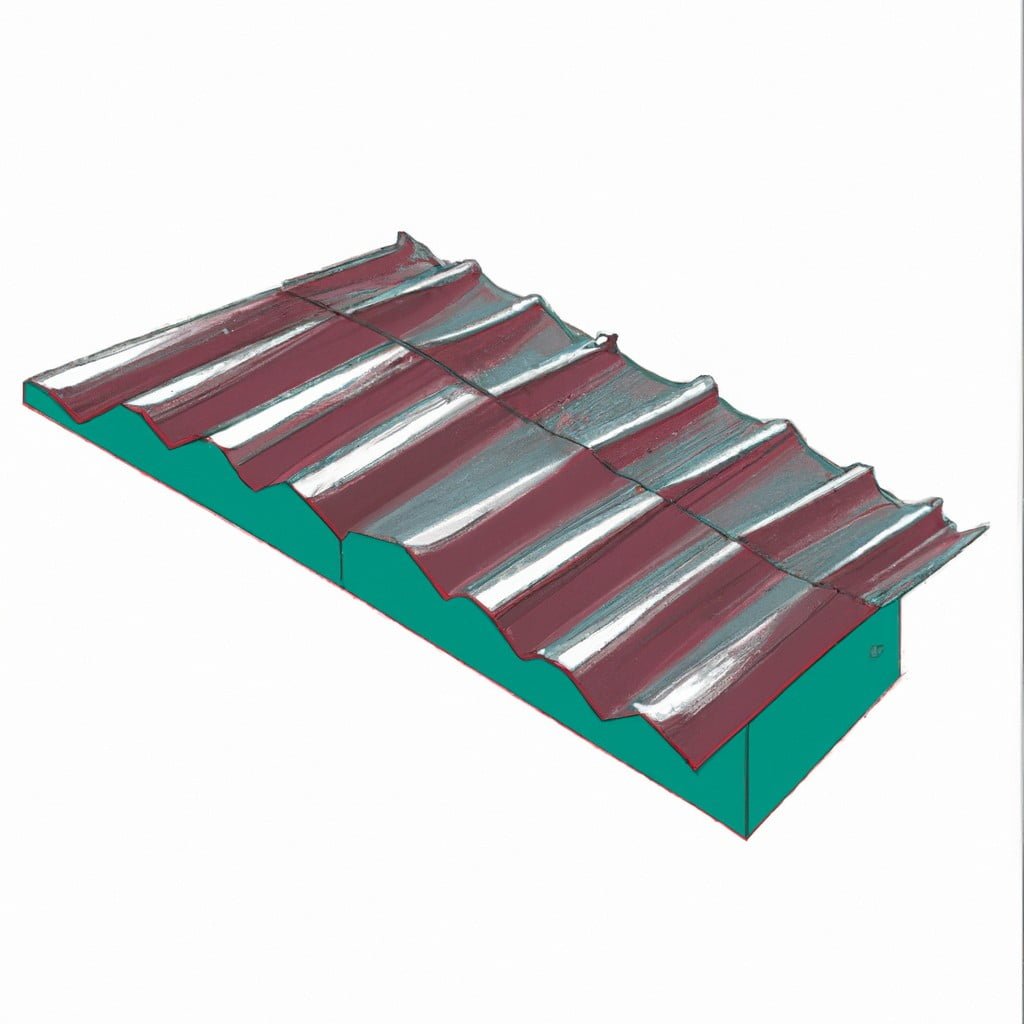
Each type has its unique characteristics and benefits that make them suitable for different applications. The most common types of metal roofs include:
1. Standing Seam Metal Roofs: This is the most popular type of metal roof due to its sleek appearance and durability.
It consists of interlocking panels that run vertically along the roof’s slope.
2. Corrugated Metal Roofs: These roofs have a wavy pattern and are commonly used in agricultural or industrial settings due to their affordability.
3. Metal Shingle Roofs: These resemble traditional asphalt shingles but offer better durability, energy efficiency, and longevity.
4. Stone-Coated Steel Roofing: This roofing material mimics the look of traditional tiles or shakes while providing superior protection against harsh weather conditions.
5. Ribbed Panel Roofing– Ribbed panel roofing is an affordable option with a simple design consisting mainly flat panels with ribs running down each panel’s length.
Factors Affecting Price
The size and complexity of your roof are two significant factors that will impact the cost. A larger or more complex roof will require more materials and labor, which means a higher overall cost.
The type of metal you choose for your roofing material is another factor that affects pricing. Copper is one of the most expensive metals used for roofing, while steel tends to be less costly.
Installation costs vary depending on several variables such as location, accessibility to your home’s rooftop area (steepness), and whether there are any existing layers on top already requiring removal before installing new ones.
It’s essential to consider other expenses like permits fees or disposal charges when budgeting for a new metal roof in Florida.
Regional Price Variation
For example, the price of materials and labor may be higher in urban areas than rural ones due to increased demand and competition among contractors. Some regions may require specific building codes or permits that could add to the overall cost.
It’s essential to research local roofing companies’ prices and compare them with national averages before making any decisions about your new roof. Keep in mind that while it might be tempting to choose a contractor based solely on price, quality workmanship is crucial for ensuring your metal roof lasts as long as possible.
When budgeting for your new metal roof project, consider reaching out to multiple contractors for quotes so you can get an accurate idea of what costs are reasonable within your area.
Average Cost of Materials for a Metal Roof
The average cost per square foot for metal roofing materials in Florida ranges from $3 to $10, depending on the type and quality of material you choose. For example, corrugated steel panels are typically less expensive than standing seam panels made from aluminum or copper.
Other factors that can affect material costs include coatings, finishes, and insulation options. Coatings such as Kynar 500 or Hylar 5000 can add an additional layer of protection against fading and corrosion but also increase costs by up to 20%.
Insulation options like rigid foam board or spray foam insulation can improve energy efficiency but also add extra expenses.
It’s essential to consider all these variables when budgeting for your new roof project so that you have a clear idea about how much it will cost before starting any work. Keep in mind that while choosing cheaper materials may save money upfront; they may not be as durable over time compared with higher-quality products.
Metal Roof Costs
On average, a metal roof installation in Florida can cost between $9 to $14 per square foot for materials alone. This price range is higher than traditional asphalt shingles but lower than premium roofing options like slate or tile.
It’s important to note that while metal roofs may have a higher upfront cost compared to other roofing materials, they often provide long-term savings due to their durability and energy efficiency. Metal roofs are known for their longevity with some lasting up to 50 years or more with proper maintenance.
When considering the costs associated with installing a new roof in Florida, it’s essential also to factor in any potential rebates or incentives available from local utility companies or government programs that promote energy-efficient home improvements. Financing options may be available through contractors themselves or third-party lenders.
Cost of Installation
The installation process for metal roofing requires specialized skills and equipment, which can increase labor costs. The complexity of your roof’s design and slope can also affect the cost.
On average, homeowners in Florida pay between $3 to $7 per square foot for professional installation services. However, this price may vary depending on several factors such as location, contractor experience level or company reputation.
It’s essential to choose an experienced and reputable contractor who specializes in installing metal roofs to ensure that your investment is worth it. A good contractor will provide you with an accurate estimate based on your specific needs while ensuring quality workmanship throughout every step of the project.
While it may be tempting to cut corners by hiring inexperienced contractors or attempting DIY installations yourself; doing so could lead to costly mistakes down the line that could compromise both safety and longevity.
Metal Roofing Costs Vs. Shingles
While the initial cost of a metal roof may be higher than that of shingles, it’s essential to consider the long-term benefits and savings.
Metal roofing is more durable and has a longer lifespan than shingles. A typical asphalt shingle roof lasts around 20 years, while a well-maintained metal roof can last up to 50 years or more.
This means you’ll need fewer repairs over time with a metal roof.
Because they reflect heat from the sun instead of absorbing it like traditional dark-colored asphalt shingles do, your home will stay cooler in hot climates with less energy consumption for air conditioning – which translates into lower utility bills!
Maintenance Costs
While metal roofs require less maintenance than traditional asphalt shingle roofs, they still need some upkeep to ensure their longevity and performance. The good news is that the maintenance required for a metal roof is relatively minimal compared to other types of roofing materials.
One of the most significant advantages of a metal roof is its durability, which means you won’t have to replace it as often as other types of roofing materials. However, regular inspections and cleaning can help extend your roof’s lifespan even further.
To keep your Florida home’s metal roof in top condition, you should inspect it at least once or twice per year for any signs of damage or wear and tear caused by weather conditions such as hurricanes or salt corrosion from coastal areas. You should also clean debris off the surface regularly using a soft-bristled brush or leaf blower.
If you notice any issues with your metal roof during an inspection, be sure to address them promptly before they become more severe problems that could lead to costly repairs down the road.
Rebates and Incentives
Many utility companies offer rebates for energy-efficient upgrades, including metal roofing. The federal government also offers tax credits for homeowners who install energy-efficient roofs, such as those made from metal.
In addition to these financial benefits, choosing a metal roof can also increase your home’s resale value and attract potential buyers looking for an eco-friendly option. By investing in a durable and long-lasting roofing material like metal, you’ll not only save money on future repairs but also contribute to reducing your carbon footprint.
Before making any decisions about installing a new roof or upgrading your current one with a more sustainable option like metal roofing, it’s essential to research all available rebates and incentives that may be applicable in Florida. This way you can make an informed decision based on both the upfront costs as well as long-term savings opportunities that come with choosing this type of material over traditional options like asphalt shingles or clay tiles.
Financing Options
Many roofing companies offer financing plans that allow homeowners to pay for their new roof over time with low monthly payments. Some companies even offer zero percent interest rates for a certain period.
Another option is to take out a home equity loan or line of credit, which can be used to finance your metal roofing project. These loans typically have lower interest rates than credit cards and personal loans, making them an attractive option for those looking to save money on their roofing project.
Some government programs and rebates may be available in Florida that can help offset the cost of installing energy-efficient roofs like metal roofs. Be sure to check with your local utility company or state government agency regarding any incentives they may offer.
There are many financing options available when it comes time to install your new metal roof in Florida.
Energy Efficiency
Metal roofs reflect solar heat, which helps to keep your home cooler and reduce your air conditioning costs during hot summer months. This reflective property can also help extend the lifespan of your HVAC system by reducing wear and tear on it.
Some metal roofing materials are designed with insulation layers that further improve their energy efficiency. These insulated panels can help regulate indoor temperatures year-round, keeping you warm in winter and cool in summer while saving you money on heating and cooling bills.
Investing in an energy-efficient metal roof not only saves you money but also reduces greenhouse gas emissions associated with traditional roofing materials like asphalt shingles or tiles.
Insurance Savings
In Florida, where hurricanes are a common occurrence, having a metal roof can provide significant savings on insurance premiums. Insurance providers recognize that homes with metal roofing are less likely to suffer damage during high winds or hailstorms than those with traditional asphalt shingle roofs.
Some insurance companies may offer additional discounts for installing energy-efficient roofing materials like metal. By reducing your home’s energy consumption through the installation of an energy-efficient roof, you may be eligible for further savings on your homeowner’s insurance policy.
It is essential always to check with your insurer before making any changes or upgrades as policies vary between providers and states.
Florida Climate Impact
The state experiences high humidity, heavy rainfall, and intense heat during the summer months. These weather conditions can cause damage to traditional roofing materials like asphalt shingles or clay tiles over time.
However, metal roofs are designed to withstand harsh weather conditions better than other roofing materials. They are highly resistant to moisture damage and do not absorb water like traditional roofs that may lead to mold growth or rotting.
Florida is prone to hurricanes which can cause severe damage even for well-built homes with sturdy roofs. Metal roofing has been proven as one of the most hurricane-resistant types of roofing material available in today’s market due its strength and durability.
Hurricane Resistance
Metal roofs are an excellent choice for hurricane-prone areas because they can withstand high winds and heavy rain. In fact, many metal roofs have been tested in wind speeds up to 140 mph and have passed with flying colors.
One reason why metal roofs are so durable during hurricanes is that they interlock tightly with each other, creating a secure barrier against strong winds. Most metal roofing systems come with warranties that cover damage caused by severe weather events like hurricanes.
If you live in Florida or any other hurricane-prone area, it’s essential to choose a roof that can protect your home from the elements. A metal roof may be more expensive than traditional asphalt shingles upfront but could save you money in the long run by reducing repair costs after severe weather events like hurricanes or tropical storms.
Salt Corrosion Resistance
However, many metal roofing materials are designed to withstand saltwater exposure and resist corrosion. If you live in a coastal area of Florida or near the ocean, it’s essential to choose a metal roof that is resistant to salt corrosion.
Galvanized steel roofs have been used for decades in coastal regions due to their excellent resistance against saltwater damage. Aluminum is another popular choice as it does not corrode easily when exposed to seawater or salty air.
Another option is stainless steel roofing material which contains chromium that forms an oxide layer over the surface of the roof protecting it from rusting caused by moisture and salts present in humid environments like Florida’s coastlines.
When choosing your new metal roof, make sure you select one with high-quality coatings specifically formulated for resisting corrosive elements such as sea spray. These coatings will help protect your investment from premature wear-and-tear caused by harsh environmental conditions found along Florida’s coastline.
Roof Longevity
While traditional asphalt shingle roofs typically last between 15 and 20 years, metal roofs can last up to 50 years or more with proper maintenance. This means that you won’t have to worry about replacing your roof as often, saving you money in the long run.
Metal roofing materials are designed to withstand harsh weather conditions such as high winds, heavy rainfalls and hailstorms which makes them an excellent choice for Florida’s climate. They are resistant to fire damage and do not rot or decay like other roofing materials.
To ensure maximum lifespan for your metal roof it is important that it is installed correctly by a professional contractor who has experience working with this type of material. Regular inspections should also be carried out every few years so any minor issues can be addressed before they become major problems.
Pros and Cons of Metal Roofing
One of the most significant benefits is its durability, as metal roofs can last up to 50 years or more with proper maintenance. Metal roofs are energy-efficient and can help reduce your home’s cooling costs during hot Florida summers.
However, there are also some drawbacks to consider when choosing a metal roof. For example, they tend to be more expensive than other roofing materials upfront.
They may also require specialized installation techniques that not all contractors have experience with.
Another potential downside is that some people find the sound of rain hitting a metal roof loud and distracting during heavy storms or showers.
Choosing a Contractor
A reputable and experienced roofing contractor can ensure that your new metal roof is installed correctly and will last for many years to come.
To find a reliable contractor, start by asking friends or family members who have recently had their roofs replaced. You can also check online reviews from previous customers or look up local roofing associations for recommendations.
Once you’ve narrowed down your list of potential contractors, be sure to ask them about their experience with metal roofing specifically. Ask for references from past clients who have had similar projects done on their homes.
It’s also essential to verify that any prospective contractors are licensed and insured in Florida before hiring them. This protects both you and the workers in case of accidents during installation.
Make sure that all estimates provided include detailed information about what work will be done so you can compare apples-to-apples when making your final decision on which contractor to hire.
FAQ
Is it worth getting a metal roof in Florida?
Yes, it is worth getting a metal roof in Florida due to its durability, lasting a lifetime in humid climates and being more resistant to hurricane damage compared to shingle roofs which may last only around 12-15 years.
Is insurance cheaper with a metal roof in Florida?
Yes, insurance is cheaper with a metal roof in Florida, as it can lower your homeowner’s insurance by 25% due to its unmatched durability and longer lifespan.
Are metal roofs worth the extra cost?
Yes, metal roofs are worth the extra cost due to their durability, longevity, energy-efficiency, fire-resistance, pest-resistance, and eco-friendliness.
What type of metal roof is best for Florida?
The best type of metal roof for Florida is standing seam metal roofing, which features interlocking metal panels with concealed fasteners and a raised seam for protection from the elements.
How does a metal roof perform in Florida’s hurricane-prone environment?
In Florida’s hurricane-prone environment, a metal roof performs well due to its durability, wind-resistant properties, and ability to withstand extreme weather conditions.
What is the average lifespan of a metal roof in Florida’s climate?
The average lifespan of a metal roof in Florida’s climate is approximately 40-60 years.
Are there any specific installation or maintenance considerations for metal roofs in Florida?
In Florida, metal roofs require considerations of proper installation techniques, regular maintenance, and ensuring resistance to harsh weather conditions and corrosion.
